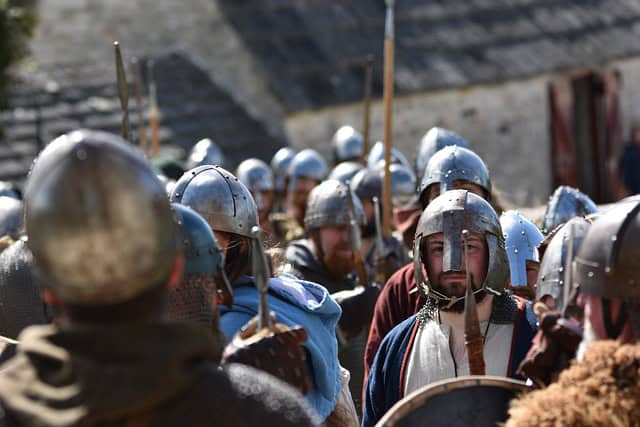Medieval kings were more than just warriors and rulers—many were master strategists, skilled in psychological tactics that ensured their authority and influence remained unchallenged. From manipulating nobles and rivals to exploiting fear, loyalty, and diplomacy, kings carefully orchestrated their moves to maintain control over vast kingdoms. This article explores the secret strategies and mind games that medieval monarchs employed to rule effectively, revealing the hidden workings behind the crown.

Here are a few strategies that were used for psychological manipulation and control
1. Propaganda and Myth-Making
Kings would often employ propagandists to spread stories and myths that reinforced the legitimacy of their rule. These myths could include claims of divine right, heroic ancestry, or even miraculous events associated with the king’s reign. These narratives were intended to create a sense of awe and reverence for the ruler, discouraging dissent.

2. Public Displays of Power
Elaborate ceremonies, grand processions, and ostentatious displays of wealth and power were common tactics used to intimidate subjects and rival nobles. These public spectacles served to showcase the ruler’s authority and reinforce the idea that the king was not just a political leader, but a figure of almost divine stature.
3. Punishments and Executions
Public punishments and executions, such as public hangings or beheadings, were used as a form of psychological control. The gruesome displays served as a stark reminder of the ruler’s authority and the consequences of rebellion or disobedience.

4. Fortress and Castle Building
Constructing imposing castles and fortresses, strategically placed in key regions of the kingdom, projected a sense of permanence and invulnerability. These structures were not only defensive in nature but also conveyed the message that the ruler was a force to be reckoned with.
5. Surveillance and Spying
Rulers often employed spies and informants to monitor the activities of nobles and potential rivals. The constant fear of being watched and reported upon could lead to self-censorship and compliance among the nobility.
6. Rewards and Patronage
Kings would reward loyal subjects with titles, land, or positions of power, creating a sense of indebtedness. This tactic not only secured the loyalty of individuals but also sent a message that allegiance to the king was personally beneficial.

7. Cultural and Religious Symbolism
Kings would often associate themselves with religious institutions and symbols, presenting themselves as divinely appointed rulers. They would participate in religious rituals and ceremonies, aligning their rule with the divine order and gaining the support of religious authorities.
8. Divide and Rule
Creating divisions and rivalries among nobles and regional leaders prevented the emergence of a unified opposition. This strategy also extended to fostering rivalries between different social classes to prevent them from forming alliances against the king.

These psychological warfare tactics were used to manipulate the perceptions, fears, and loyalties of subjects and nobles alike.
By carefully orchestrating narratives and behaviors, kings sought to maintain a grip on power and ensure their dominance within their realms.
📜 Frequently Asked Questions
What are psychological tactics in medieval kingship?
These tactics included **manipulating nobles, using fear and loyalty**, and strategic alliances to maintain **control over the kingdom** and prevent rebellion.
Did all kings use psychological strategies?
Not all, but many successful kings employed **psychological insight** to manage relationships, influence decision-making, and strengthen their rule.
How did kings manipulate their nobles?
They used **gifts, favors, marriages, intimidation, and legal powers** to gain loyalty, discourage dissent, and secure the support needed for governance.
Did psychological tactics help in wars?
Yes, kings often used **deception, propaganda, and strategic alliances** to outmaneuver rivals and gain advantage before or during conflicts.
Were psychological strategies written down?
Some were recorded in **chronicles, letters, and advisory texts**, but many strategies were practiced orally and adapted to each situation.
Can we see these tactics today?
Many modern **leadership and political strategies** have roots in these medieval techniques, showing the timeless value of understanding influence and power.
Why study psychological tactics of kings?
Studying these tactics provides insight into **medieval power structures**, decision-making, and how leaders maintained authority in complex social hierarchies.






